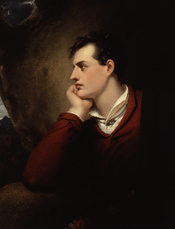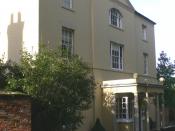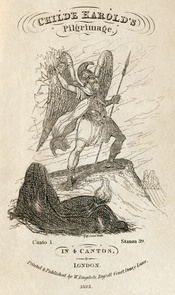Lord Byron: His Life and Influence in the World of Literature
Scandalous, provocative, disturbing. Few people would associate those words with a world-renowned poet. Those words, however shocking they may be, were often used to describe the life of Byron. An English poet born on Jan. 22, 1788, in London, Byron is most famously known for his contributions to Romantic writing. His narrative poems Childe Harold's Pilgrimage and Don Juan are among his best-known works (Wikipedia, par. 2). Much of the notoriety surrounding Byron lies on his provocative lifestyle, which included extravagance, love affairs, incest, sodomy, and numerous debts (Wikipedia, par. 2). Lady Caroline Lamb described him as "mad, bad and dangerous to know."
In addition to his title, Byron had two last names, but only used one at any given time. He was christened George Gordon Byron in London; Gordon was his baptismal name, which was used to honor his grandfather.
Byron's father used the surname Gordon so that he could claim his wife's estate in Scotland.
Born the son of Captain John "Mad Jack" Byron and his second wife, Catherine Gordon (former heiress of Gight in Aberdeenshire, Scotland), Byron suffered from talipes of the right foot which caused a limp. This condition made Byron eternally upset, as he believed that had he been properly treated, it could have been cured. His grandfather committed suicide in 1779 and his mother Catherine had to sell her title and land in order to pay her father's debts. However, Byron inherited Newstead Abbey in Nottinghamshire, upon the death of his great-uncle on May 21, 1798. The death of his great-uncle made him the sixth Baron Byron.
It was at Aberdeen Grammar School where Byron received his early formal education, and, in 1801, he moved to Harrow where he remained until 1805. He...


